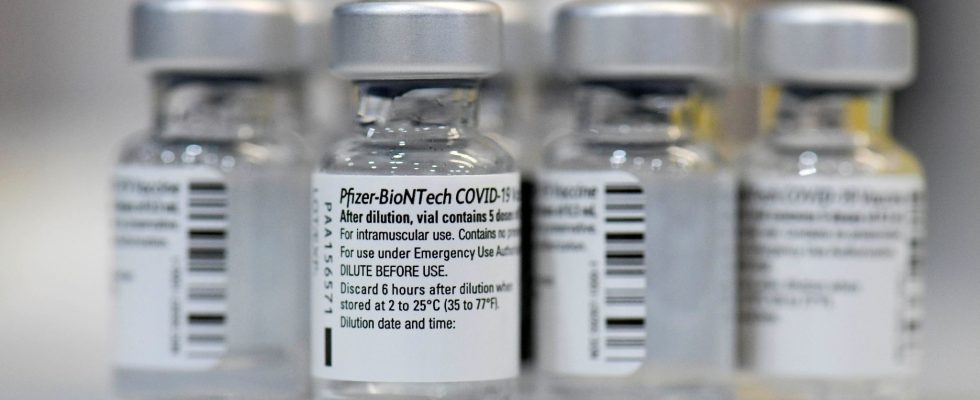The planet is not done with Covid: the increase in the number of cases observed in France testifies to the establishment of this disease in the landscape, like the seasonal flu. But for BioNTech, Pfizer, Moderna and other AstraZeneca, a golden parenthesis is about to close. After three years of profits as record as they are open to controversy, the champions of the pandemic are learning to live without the windfall of Covid. The landing was expected. It remains no less brutal.
Initiating one of the first messenger RNA vaccines with Pfizer, BioNTech has become a locomotive of German growth in recent years. In 2021, the company paid 1 billion euros in taxes to its home municipality of Mainz. A contribution commensurate with the 10 billion euros in net profit that biotech generated that year, and a “miracle” for one of the most indebted cities in Germany. But the second quarter of 2023 marked the end of a prosperous period: BioNTech returned to the red, showing a loss of 190 million euros. Its North American ally Pfizer recorded at the same time a drop in its sales of 54%, weighed down by the plummeting demand for its anti-Covid vaccine Comirnaty and for its antiviral treatment Paxlovid. Enough to explain the adjustments underway among these pharma players, particularly within biotechs: “The conditions are less favorable on the market. It is more difficult for these companies to finance themselves”, explains Patrick Biecheler, partner at Bain & Company, member of the health and private equity of the consulting firm.
Across the Rhine, BioNTech has decided to cut its research & development (R&D) spending by 400 million euros for 2023. In Switzerland, Moderna caused consternation by ending its partnership with the Basel subcontractor. Lonza for the production of anti-Covid vaccines. With the decline in sales, the American biotech prefers to internalize this activity. Is the wheel turning for the winners of the anti-Covid fight? “We are moving from pandemic mode to endemic mode. The revenues of these companies will drop very sharply, but they will not disappear. Covid will remain a profitable business for manufacturers of vaccines and treatments,” refutes Luc Berger, director of health activities in France for the consulting company Alcimed.
Acquisitions and projects in spades
More than three years after the outbreak of the pandemic, Pfizer is still sitting on a pile of gold… which it is putting to good use. After the migraine expert Biohaven, the New York giant got its hands on the biotech Seagen, a specialist in cancer treatments, for a record sum of 43 billion dollars (41 billion euros). Coupled with continued R&D efforts, these acquisitions should allow the group led by the Greek Albert Bourla to almost double its turnover excluding Covid: in 2030, it could reach 84 billion dollars (80 billion euros) . Swedish-British competitor AstraZeneca continues to expand its portfolio of specialized drugs, including a treatment for lung cancer considered promising.
If it puts its subcontractors under pressure, Moderna is also firing on all cylinders. Its manager Stéphane Bancel has submitted a new proposal to the French government, in the hope of opening a factory in France. With one condition: that the State places an order with the future French installation. “We managed to make agreements with Canada, England and Australia, who committed to us for ten years. I hope that we will also find a way to do this in France,” slipped the French CEO in an interview with BFM TV in September. Not sure that such a deal will arouse great enthusiasm among European authorities… While waiting for a response from France, Moderna wants to capitalize on mRNA technology. Bronchiolitis, flu, skin cancer, projects are coming together. There is no question of losing the lead acquired during the Covid period.
